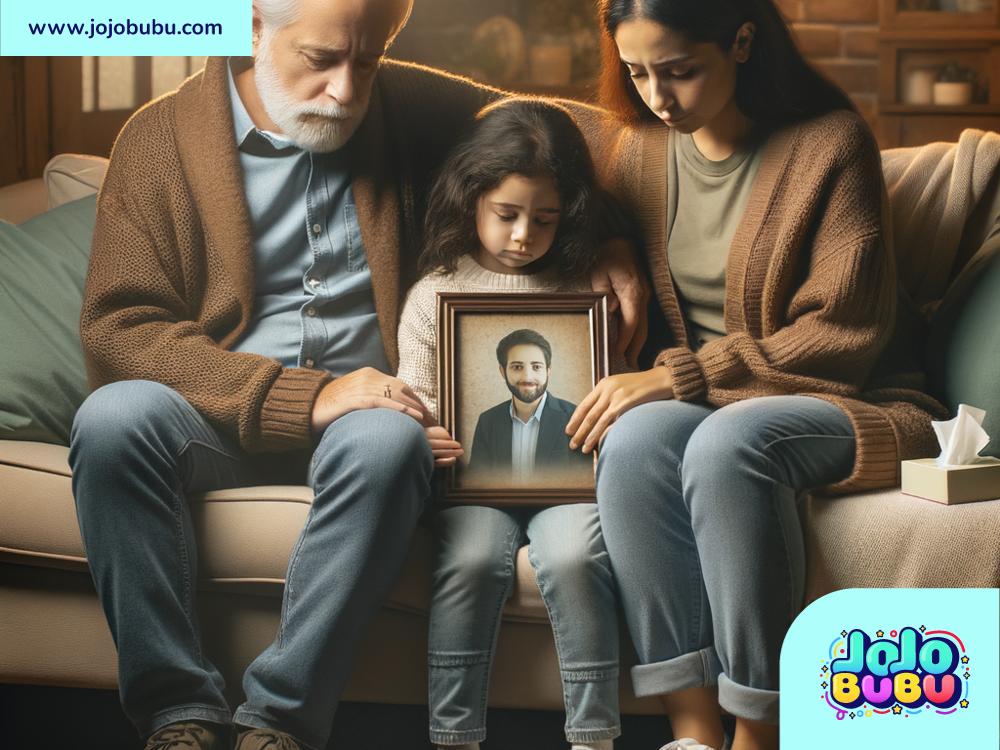Managing Loss of a Sibling: Coping with Death or Estrangement
Losing a sibling, whether through death or estrangement, is one of life's most painful experiences. A sibling is often our first friend, our closest companion, and someone we assume will journey through life with us. When that connection is severed, it can leave us heartbroken and uncertain about how to move forward. This blog aims to provide guidance for managing the grief and finding ways to heal.
Understanding the Loss
The bond between siblings is unique. They know us in ways that few others can. We've grown up together, shared family memories, fought, laughed, and supported each other. Because this relationship is so personal, its loss—whether permanent due to death or temporary due to estrangement—can leave a deep void.
Grieving is natural and necessary. It might come in waves: sadness, anger, disbelief, or even guilt. Everyone grieves differently, so it's important to give yourself permission to feel all these emotions without judgment. Loss is never easy, but understanding and acknowledging your feelings is the first step toward healing.
Coping with the Death of a Sibling
Death brings finality, which makes loss feel permanent. While the pain might feel unbearable, there are ways to cope, honor the sibling's memory, and gradually move forward.
1. Allow Yourself to Grieve
Grief isn't linear—it doesn’t follow a set timeline or pattern. You might feel okay one day and deeply sad the next. This is normal. Allow space for your emotions. Cry if you need to, share your feelings with someone you trust, and don’t rush yourself to “move on.”
2. Lean on Emotional Support
Talk to your family, friends, or even a counselor about how you’re feeling. Sharing your grief can be comforting, especially when others understand what the sibling meant to you. Joining a bereavement group can also connect you with people going through similar experiences.
3. Celebrate Their Life
Remembering your sibling can be healing. Celebrate their life by talking about positive memories, looking at old photos, or creating something meaningful in their honor, like a scrapbook, a letter, or a donation to their favorite cause.
4. Take Care of Yourself
Grief can take a toll on your mental and physical health. Try eating balanced meals, getting enough sleep, and exercising—even gentle activities like walking or yoga can help. Journaling your thoughts can also help you process emotions.
Managing Estrangement
Estrangement is equally painful but often less talked about. When your sibling is physically alive but emotionally distant, you may feel abandoned, betrayed, or confused. While this loss lacks finality, it can feel equally heavy because the uncertainty makes healing more challenging.
1. Understand What Happened
Estrangement doesn't always have a clear cause. Sometimes, family dynamics shift, misunderstandings grow, or life circumstances pull people apart. Reflect on your relationship and ask yourself if there’s a specific reason for your current distance. This clarity can help you decide what to do next.
2. Communicate, If Possible
If you’re open to reconciliation and you believe your sibling might be too, reach out. Try to have an honest conversation or write them a letter explaining your feelings. Avoid blame; focus on expressing your emotions and desire for understanding. However, be prepared for the possibility that they may not respond or want to reconnect—accepting their choice is part of healing.
3. Accept What You Can’t Control
Sometimes, despite your best efforts, the relationship may remain distant. Accepting that you can’t force someone to reconnect is painful but important. Focus on your own emotional well-being. Let go of guilt and remind yourself that estrangement often involves two sides—you’re not solely responsible.
4. Create Space for Healing
It can help to shift your focus away from the loss and toward building a fulfilling life. Connect with friends or other family members, deepen your hobbies, and surround yourself with positive relationships. Filling your life with love and support can ease the loneliness that estrangement often brings.
Additional Tips for Moving Forward
Find Ways to Express Your Feelings
Writing about your sibling—whether they’ve passed away or you’re estranged—can be therapeutic. Journaling is a private way to process emotions without judgment. You might write about memories, emotions, or even what you’d say to them if they were there or willing to listen.
Consider Professional Help
If the grief feels overwhelming, talking to a therapist or counselor can be incredibly helpful. A professional can provide tools to navigate the emotional journey and help identify ways to move forward.
Focus on Yourself
Remember that healing doesn’t mean forgetting your sibling—it means creating space for joy, growth, and self-care, even amid the pain of loss.
Surround Yourself with Love
Turn to trusted family members and friends for comfort. Nurturing these relationships may not replace your sibling, but they can provide a sense of belonging and support.
Closing Thoughts
Losing a sibling—whether through death or estrangement—is heartbreaking. The pain can make you feel lost and alone, but you don’t have to navigate this journey on your own. Be patient with yourself and seek support from others, celebrate the good memories, and honor your emotions as valid and important.
Time won’t erase your grief, but it will help it become more manageable. Every person heals at their own pace, so focus on taking small steps toward peace. Remember, life can still be full of meaningful connections and joy—even after such a profound loss.

